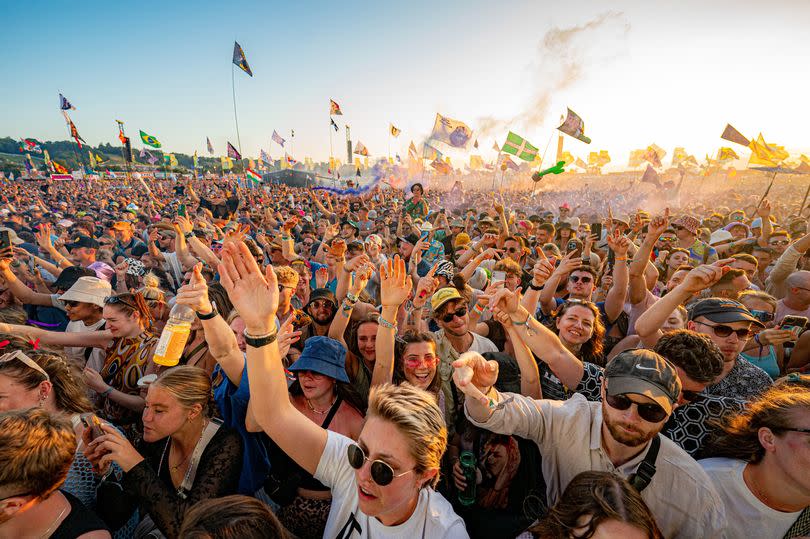Glastonbury Festival was 'on brink of closure' in 90s before Sir Michael Eavis' tragic loss

Beyonce, Stormzy, Dolly Parton, Sir Paul McCartney and Sir Elton John are just a few of the big names who have graced the Glastonbury stage over the past decade. However, these unforgettable performances almost didn't happen, as the festival was on the brink of closure in the Nineties.
The event, which was founded by Sir Michael Eavis on his Somerset farm in 1970, had grown into one of the most renowned music festivals globally, but he was considering calling it quits three decades ago.
"My parents were always like, 'This is the last one'," Emily Eavis revealed on the BBC's Sidetracked podcast. "Everyone thought it was some sort of stunt to sell tickets but it wasn't. They were genuinely like, 'Well, we probably won't do another.'"
Read more:
The festival became a permanent fixture only after the death of Sir Michael's wife, Jean, in 1999. "My dad was like, 'Oh, I think I might need the festival now' Because they were going to retire and go on long cruises and things like that. My dad was like, 'Listen, let's keep it going.' I was like, 'Yeah, I'll help you'. Never did I think I'd still be here a few decades on."
Now aged 88, Sir Michael remains involved with the festival, but the majority of the organisation including booking the main stages is now managed by his daughter Emily and her husband Nick Dewey. They are gearing up to open the gates for this year's event in a few weeks, with headliners including Dua Lipa, SZA and Coldplay, reports the Mirror.
However, Emily has indicated that the festival will likely take a fallow year in 2026. "The fallow year is important because it gives the land a rest, and it gives the cows a chance to stay out for longer and reclaim their land," she said.
The organiser also spoke on the possibility of introducing a ballot-based ticket system, after numerous hopeful music lovers missed out on tickets for this year's event. Lucky festival-goers snapped up the final batch of tickets in 20 minutes, after ticket packages sold up in just 18.
Speaking to Annie Mac and Nick Grimshaw on their Sidetracked podcast, Emily said: "It's been a discussion, actually. I think there are so many people on our database that are registered for tickets. And I think a lot of them don't try as hard as [others]."
"Half of them try really, really, really hard [to buy tickets] and half of them maybe try and then don't they're not as bothered about coming. So I'm not saying... it's hard to say the percentage exactly. And I think if we did a ballot, we'd end up with some people [getting tickets] who weren't necessarily as bothered about coming."

 Yahoo News
Yahoo News 
